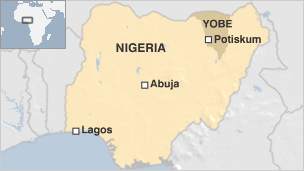Featured
In Nigeria, Where Graft Is the System – New York Times

By Adam Nossiter
ABUJA, Nigeria — The Nigerian highway is full of surprises, many of them unpleasant. At numerous police and army “checkpoints,” money is expected to change hands. The driver smiles, the men in uniform smile, hands reach out, and the car goes on its way, with the passenger from abroad only wondering at how routine it seems.
This is not a flaw in the system. It is the system. Political scientists and ordinary citizens confirm it: Corruption, top to bottom, pervades life here, magnifying a continent-wide problem. And by some measures it is getting worse.
The omnipresence of developing-world corruption, particularly in Africa, is often hard for the occasional visitor to grasp. Bill Gates, for one, has recently expressed optimism about the issue. He is a faithful visitor and significant donor to Nigeria, a top focus for his foundation in Africa. Photographed in the smiling company of the country’s leaders, he has taken the lead in combating polio in the country and supports programs in agriculture, family health and financial services.
Unlike the citizens, analysts and others who have long-term exposure to corruption in Africa, Mr. Gates plays it down in the countries he is aiding — seeing it as a discrete problem that can be separated from the rest.
Others, though, view corruption as an integral element in the governance structure of these countries.
Mr. Gates wrote last month, addressing his developing-world efforts, that “more and more, technology will help in the fight against corruption. The Internet is making it easier for citizens to know what their government should be delivering — like how much money their health clinic should get — so that they can hold officials accountable.”
There is no evidence that this is occurring in Nigeria, or elsewhere in Africa. African Internet users represented at most 7 percent of the world’s total in 2012. Even when knowledge of potential misspending seeps out, the result is often nothing. Nigerian journalists reported four months ago that the aviation minister, Princess Stella Oduah, had bought two armored BMWs for around $1.4 million for her use and that of “visiting foreign dignitaries,” as her spokesman put it. After a brief outcry, Ms. Oduah remains in office; at the principal international airport, Lagos, facilities for ordinary citizens remain a chaotic mess.
But exposure is the exception. Much in government spending, at all levels, remains hidden from the citizens. Moody’s warned potential Nigeria investors last May of a “history of opaque economic policymaking” and said that “public financial management, at both federal and state levels, remains opaque.”
Three-fourths of Nigerian and foreign companies reported “high bribery” in a 2007 study — in the obtaining of trade permits, in taxation matters, in government administration of procurement, and in matters relating to the judiciary. Nigeria is not alone: “Corruption is a hallmark of African civil service and of its relations with citizens and firms,” two American scholars of the continent, Pierre Englebert and Kevin C. Dunn, write in their new book, “Inside African Politics.”
Mr. Gates, in his letter defending the efficacy of aid to the developing world, wrote last month that “we should also remember the relative size of the problem. Small-scale corruption, such as a government official who puts in for phony travel expenses, is an inefficiency that amounts to a tax on aid.”
Corruption in Nigeria, though, is not small-scale. Since independence, some $400 billion in oil revenue has been stolen or is missing, a former World Bank vice president, Oby Ezekwesili, recently said.. Corruption is fundamental to the way the country works — or doesn’t: “Everyone in civil service is to some extent a patron, with relatives and others who are lower on the social ladder forming expectations about the extent to which they will be taken care of,” Mr. Englebert and Mr. Dunn write.
At a second Nigeria “checkpoint” recently, furious military personnel refused to let the car bearing foreigners go. Another car pulled up, and a man with the badge of a senior Nigerian civil servant walked up. “Do you want to embarrass our nation in front of strangers?” he yelled at the soldiers. The car was allowed to go on.
A version of this article appears in print on February 5, 2014, and read in The International New York Times.






